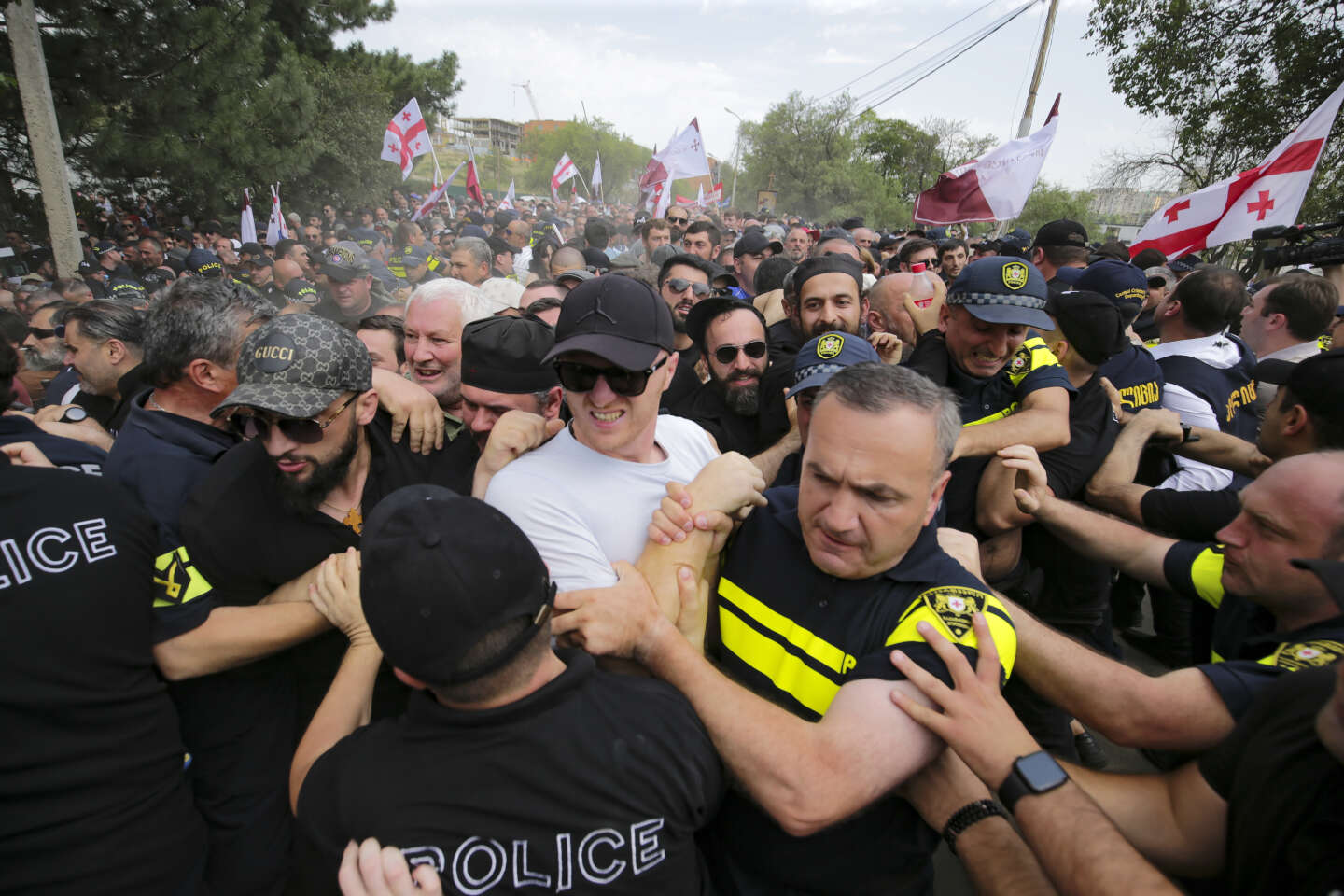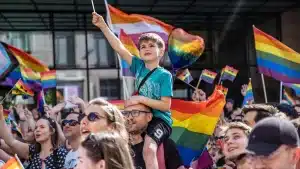The legislation would provide authorities a legal foundation to restrict books and films as well as to forbid Pride activities and public displays of the LGBTQ rainbow flag.
On Tuesday, Georgian legislators approved the third and last reading of legislation on “family values and the protection of minors” aiming at imposing extensive restrictions on LGBTQ rights.
The measure would provide authorities a legal foundation to forbid Pride gatherings and public displays of the LGBT rainbow flag as well as to impose book and movie censorship.
Leaders of the ruling Georgian Dream party said it is necessary to protect traditional moral values in Georgia, whose very orthodox Orthodox Church has great influence.
Activists claim the policy is meant to increase conservative support for the government ahead of a legislative election on October 26 in Georgia, a nation hoping to join the European Union but which Western powers fear is currently slumping back towards Russia.
Director of advocacy group Tbilisi Pride Tamara Jakeli claimed the measure, which also restates an existing prohibition on same-sex marriage and forbids gender reassignment surgery, would probably compel her group to close its doors.
According to 28-year-old Jakeli, “This law is the most horrible thing to happen to the LGBT community in Georgia.” Reuters “We most certainly will have to close. We cannot keep on working in this way.
Critics of the Georgian Dream whose powers are essentially ceremonial, Georgian President Salome Zourabichvili has said she will oppose the measure. But Georgian Dream and its supporters have enough parliamentary seats to supersede her veto.
In Georgia, LGBT rights are a divisive issue as surveys reveal general rejection of same-sex couples and the constitution forbids same-sex marriage. Anti-LGBT activists have physically attacked participants in Tbilisi’s annual Pride marches in past years.
Ahead of October’s election, where Georgian Dream is running fiercely against LGBT rights and seeks a fourth term in office, the problem has grown increasingly noticeable.
As relations with Western nations have soured, the ruling party—whose top contender for the election is wealthy former prime minister Bidzina Ivanishvili—has strengthened connections to surrounding Russia.
It passed legislation on “foreign agents” earlier this year, which European and U.S. detractors claimed is autocratic and Russian-inspired. Its passage set off some of the biggest demonstrations Georgia has witnessed since its 1991 independence from the Soviet Union.
Though it has lost support since 2020, when it obtained a limited majority in parliament, opinion polls indicate the party, which approved a law prohibiting anti-LGBT discrimination before later turning more conservative, as Georgia’s most popular.
Pride director Jakeli’s visage is seen beside the words “No to moral degradation” on one ruling party advertisement shown on Georgian television.
Although Jakeli pointed out that the opposition parties of Georgia are not clearly in favor of LGBT rights, the law could only be blocked if the Georgian Dream lost power in October.
“The only way we can survive in this country and have any progress on LGBT rights is for us to go in great numbers to the elections and vote for change,” she declared.
For other interesting stories about LGBT events please visit here



